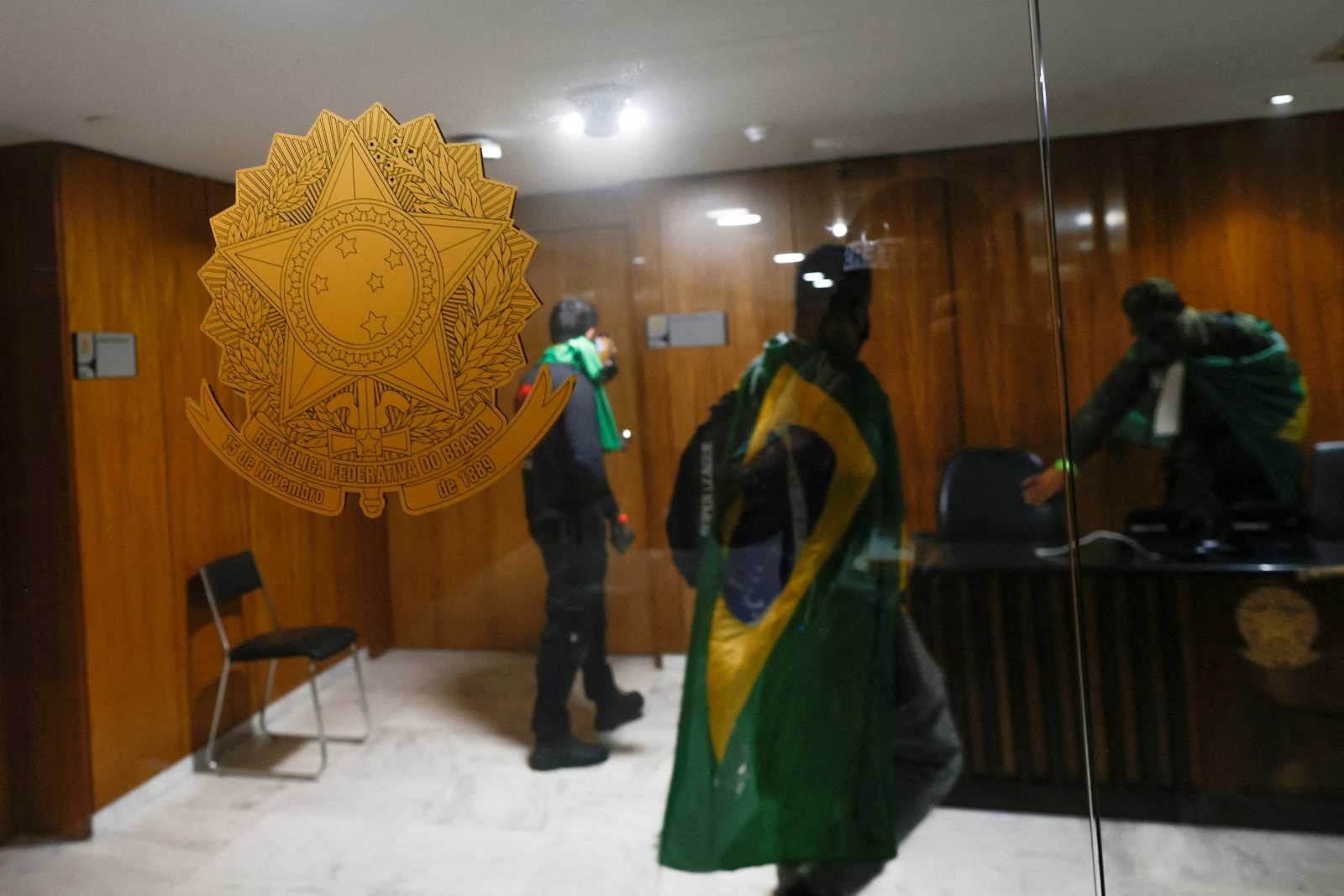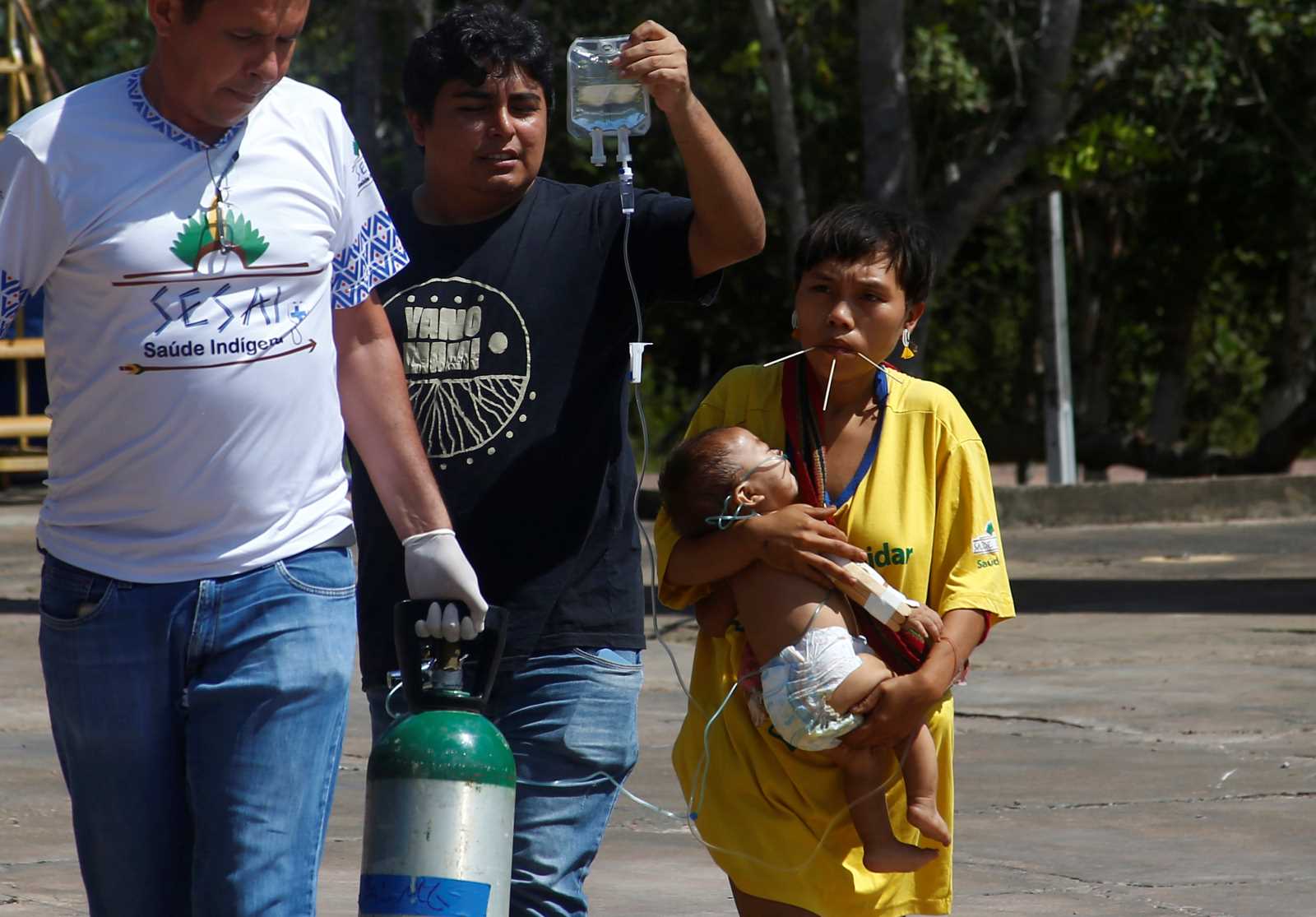Authoritarian leaders
Brazil defended democracy more effectively than the US

As presidents, both Donald Trump and Jair Bolsonaro posed a threat to democracy in the US and Brazil respectively. However, analysts agreed that Brazil is far more vulnerable to such a threat than the US. Democratic political institutions of the latter are considered to be more established and stable.
Brazil has experienced several collapses of democratic rule, usually through military intervention. The latest lasted 21 years, from 1964 to 1985, so democracy is still relatively young at 38 years, and political instability was common throughout most of the 20th century.
But after both Trump and Bolsonaro lost their bids for reelection in 2020 and 2022 respectively, Brazil reacted much more quickly and forcefully to Bolsonaro than the US did to Trump.
The two leaders employed similar strategies during their time in office to mobilise their supporters and cast doubt on election results. After they lost elections, both claimed the elections had been rigged.
In the US, a mob of Trump’s supporters stormed the Capitol on 6 January 2021, in an attempt to overturn the Electoral College vote, resulting in five casualties and more than a hundred injured people. Meanwhile, Brazil witnessed a similar event on 8 January 2023, when mobs, donned in the country’s colors, launched an attack on the Supreme Court headquarters, the Presidential palace and Congress in Brasília. Their goal was to violently overthrow the democratically elected President Luiz Inácio Lula da Silva, who had taken office on 1st January. The ensuing chaos resulted in widespread vandalism and the destruction of several historical and artistic works.
The same playbook
The similarities between the two events and the strategies used by Trump and Bolsonaro are not coincidental. Bolsonaro has made no attempt to hide the fact that he deliberately copied Trump’s playbook. However, the consequences of their failed challenges to election results were quite different in the US and Brazil.
Although Trump is facing multiple federal and state lawsuits accusing him of paying off a porn star, appropriating classified information and business fraud, as well as trying to overturn the election, he is still the most powerful politician on the American right. Trump has pleaded not guilty to all charges and has repeatedly tried to portray himself as the target of political persecution. In doing so, he has effectively used his position as a defendant to galvanise his supporters.
More than two years after his first presidency, it seems like he is about to win the Republican nomination for president again, with a large lead in the polls. His renewed candidacy for president can be secured regardless of the outcome of the court cases pending against him – the American constitution does not disqualify individuals convicted of crimes from running for or serving as president.
Bolsonaro is the subject of numerous criminal investigations as well. In addition to the charges from 8 January, he is accused of publicly discouraging the use of face masks during the pandemic and linking Covid-19 vaccines to HIV/AIDS infections, embezzling jewels donated by the Saudi government, falsifying his own vaccination certificate, interfering with the federal police and leaking confidential information about the electoral court, among other things.
However, less than a year after his presidency, two rulings of the Brazilian Electoral Court rendered Bolsonaro ineligible to run for any political office for eight years. In June 2023, the court ruled that he had abused his power when he made unfounded claims to foreign diplomats about the reliability of Brazil’s electronic voting system. In October, the court once again found him guilty of abuse of power when he used the celebrations to mark the 200th anniversary of Brazil’s independence last year for election campaign purposes. Bolsonaro cannot run for president again until the 2030 elections, when he will be 75 years old. He says he will appeal to the Supreme Court, but it is highly unlikely that he will be able to overturn the two judgements.
The responses to the events in Brasília and Washington differed too. In Brasília, more people were immediately arrested. According to the Brazilian Minister of Justice and Public Security, around 200 people were detained. The US Capitol Police counted at least 14 arrests in Washington.
Harsher sentences
In addition, the Supreme Court’s judgements against the members of the mob that stormed the government buildings in Brasília were handed down more quickly and with much harsher sentences than the judgements against Trump supporters who were involved in 2021.
In the US, those convicted of conspiracy against democracy can appeal. In Brazil, it was the Supreme Court that convicted the conspirators, so there is no higher court to appeal to. The judgements handed down by the Supreme Court are final.
The reason for the different responses of the US and Brazilian institutions lies in the differences between the political and state structures of the two countries. In the US, elections are organised by the states, with different procedures for eligibility to vote and the way in which votes are cast and registered across the country. In contrast, in Brazil, the entire electoral process is centralised and governed by the Electoral Court, which usually decides, among other things, which candidates are eligible to run. Brazilian electoral law temporarily bars politicians who abuse their mandate from running for office, as in the case of Bolsonaro.
The Brazilian electoral system also did a better job of preventing Bolsonaro and his supporters from waging a protracted battle over the election results, as Trump did. In the US, the vote count was slow and delayed the announcement of the results by days. After that, the Electoral College process took another two months. In addition, elections and audits were conducted in every state. Trump and his supporters therefore had more time and numerous targets to organise attacks on the electoral process. In Brazil, an electronic voting system counted the votes in just two hours and the central electoral authority, not the TV news channels, announced the winner that same evening.
The Brazilian system also allowed the authorities to crack down much more aggressively on anti-democratic fake news in the aftermath. The Supreme Court ordered searches, seizures and arrests.
Nevertheless, the measures in Brazil to combat electoral misinformation were not without criticism. The courts were accused of being disproportionate, e.g., against people who merely criticised the courts. The sentences for members of the mob that attacked the government buildings were also considered too harsh by several legal scholars.
Overall, analysts view Brazil’s political system as potentially more susceptible to abuse. Because the Brazilian system places too much power in the hands of the seven judges of the Electoral Court rather than the voters and subnational entities, it allows for less checks and balances and less local oversight.
As a final note, the political aftermath of these anti-democratic challenges in the US and Brazil varies significantly too. In the US, a substantial portion of the Republican Party has embraced unfounded election-fraud claims, leading to the enactment of new voting laws and the election of extremist Trump-supporters to national and state legislatures, as well as to the leadership of the House of Representatives.
In contrast, in Brazil, the conservative political establishment has largely distanced itself from election fraud claims and Bolsonaro. Conservative leaders and voters appear more inclined to favour moderate candidates like São Paulo’s governor, Tarcísio de Freitas, as promising presidential candidates from the political right. This shift away from extremism could potentially reduce political polarisation in Brazil and bring political disputes more in line with the constitution.
André de Mello e Souza is an economist at Ipea (Instituto de Pesquisa Econômica Aplicada), a federal think tank in Brazil.
X/Twitter: @A_MelloeSouza










